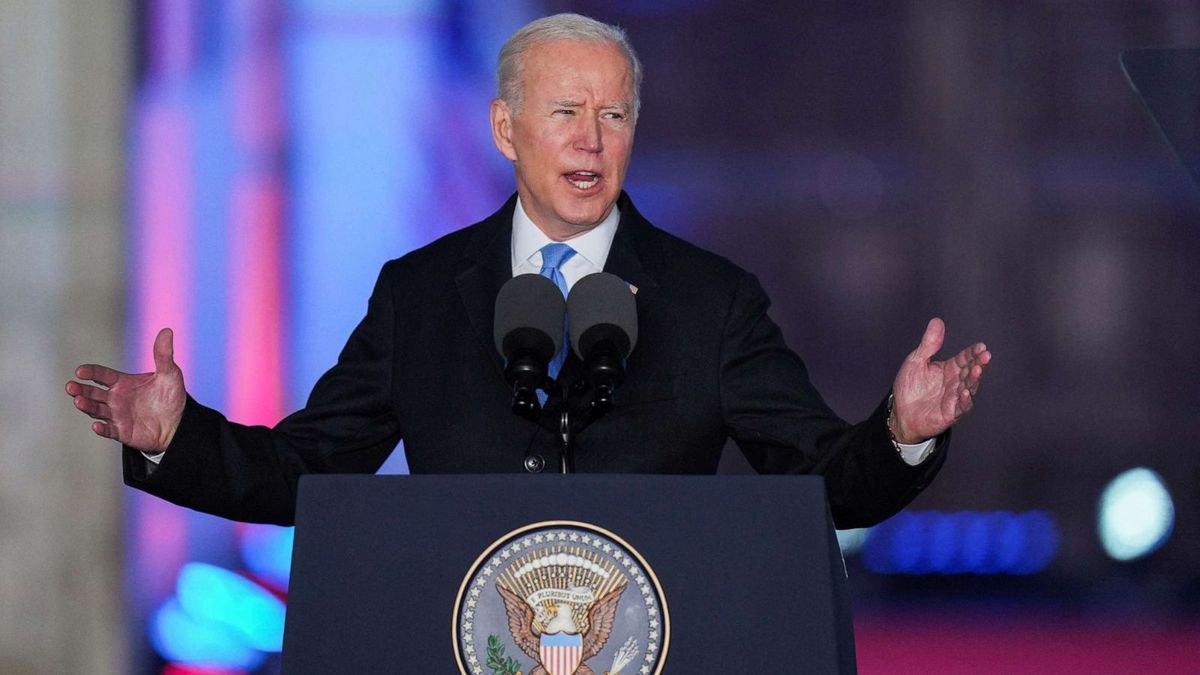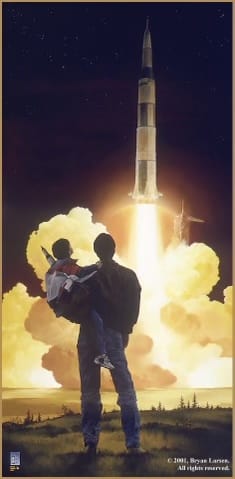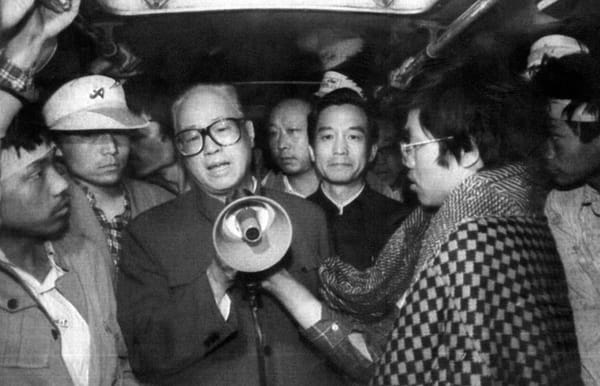Biden's Ukraine Speech: A Great Start, Followed by Cowardly Retreat

I was pleasantly surprised when I watched President Biden's speech on a live broadcast the other day. He had some incredibly powerful and positive lines - though he likely would have inadequate definitions for some of the terms he used, his use of concepts such as liberalism and freedom were powerful and positive ones. The speech emphasized that the Western World, led by the United States, stood against the barbaric and senseless invasion of Ukraine by Putin's tribalistic and thuggish Russia. He stated that democracy would prevail over authoritarianism, even going so far as to say "Don't even think about taking a single inch of NATO territory," emphasizing the "sacred obligation" of Article 5. While the United States' position within NATO is not in the self-interest of the United States, recent events have shown that NATO - and the western world - is not the paper tiger that Putin and many western academics have made it out to be.
While it's worth having a conversation about whether NATO should exist in its current iteration, it is one of the hallmark institutions of the Western World. And Stephen Kotkin, one of the best mainstream historians, identified one of the core facts of our current geopolitical situation and the authoritarian mindset: by its mere existence, despite its inherently defensive nature, NATO and the western (relatively free) mixed-market economies represent an existential threat to Russia and China. They represent an alternative form of government. NATO does not threaten the Russian people at all; however, it does threaten Putin's regime, because it represents an alternate model of governance for Russia. And this is the great threat to authoritarian regimes, who rely so much on their people identifying their own well-being with the security of their leaders' grip on power.
It is common for Western leaders (including those of Japan, Free China, and Korea) to state that we in the West have nothing against ordinary Russians or Chinese people, we simply oppose their government. That's why their leaders (particularly those of China) have worked so hard to identify the Chinese people's interests with those of the bandit CCP, and why Putin has strived to identify the security his thuggish political regime with the well-being of the Russian people.
President Biden is not a heroic figure. I did not vote for him. But he seemed to – albeit fleetingly and clumsily – grasp this on some level. I think it is important to read some excerpts from this speech he gave in Poland on March 26, which identified some important truths and seemed to channel some of President Reagan's resolve in confronting totalitarianism:
"There's simply no justification or provocation for Russia's choice of war. It's an example, one of the oldest human impulses, using brute force and disinformation to satisfy a craving for absolute power and control. It's nothing less than a direct challenge to the rule-based international order established since the end of World War II. And it threatens to return to decades of war that ravaged Europe before the international rule-based order was put in place..."
"Notwithstanding the brutality of Vladimir Putin, let there be no doubt that this war has already been a strategic failure for Russia already. Having lost children myself, I know that's no solace to the people who've lost family but he, Putin, thought Ukrainians would roll over and not fight. Not much of a student of history. Instead Russian forces have met their match with brave and stiff Ukrainian resistance. Rather than breaking Ukrainian resolve, Russia's brutal tactics have strengthened the resolve. Rather than driving NATO apart, the West is now stronger and more united than it's ever been."
"It's not only Russia's actions in Ukraine that are reminding us of democracy's blessing. It's our own country, his own country, the Kremlin, it's jailing protesters. Two hundred thousand people who have allegedly already left. There's a brain drain leaving Russia. Shutting down independent news. State media is all propaganda. Blocking the image of civilian targets, mass graves, starvation tactics of the Russian forces in Ukraine."
"Is it any wonder as I said that 200,000 Russians have all left their country in one month. A remarkable brain drain in such a short period of time. Which brings me to my message to the Russian people... You, the Russian people, are not our enemy. I refuse to believe that you welcome the killing of innocent children and grandparents, or that you accept hospitals, schools, maternity wards and for God sake's being pummeled with Russian missiles and bombs. Or cities being surrounded so that civilians cannot flee. Supplies cut off and attempting to starve Ukrainians into submission."
"A dictator bent on rebuilding an empire will never erase a people's love for liberty. Brutality will never grind down their will to be free. Ukraine will never be a victory for Russia, for free people refuse to live in a world of hopelessness and darkness. We will have a different future, a brighter future, rooted in democracy and principle, hope and light. Of decency and dignity and freedom and possibilities. For God's sake, this man cannot remain in power. God bless you all. And may God defend our freedom, and may God protect our troops. [Applause] Thank you for your patience. Thank you. Thank you."
He even criticized Europe's dependency on imported Russian fossil fuels. (This part of the speech would have been even stronger if the President had coupled it with a rejoinder against the anti-nuclear movement prevalent in many EU countries). Unfortunately, many in the D.C. establishment quickly walked back some of the more "confrontational" elements of this speech, namely the line that "...this man [Putin] cannot remain in power." The Vice President was quick to state that "We are not calling for regime change in Russia." It seemed that everyone, from the French President to a Republican Senator, was quick to condemn these "inflammatory" remarks against the primitive, mystical Putin regime. His liberal critics were right to call the confused waffling of Biden's own staff "lame" in their confused, mealy-mouthed explanations of this line from the speech. Biden himself downplayed the remarks, although refused to back down, saying "I am not walking anything back. I was expressing the moral outrage that I feel, and I make no apologies for it."
This speech illustrates some of the greatest strengths that remain in Western civilization, as embers at the bottom of a slowly stilling campfire. Perhaps this Russian invasion of Ukrainian has reinvigorated some of that individualist spirit that made the West great. These core Enlightenment ideals of individualism, individual rights, and the efficacy of reason are fundamental to what made Western nations great – from Japan and South Korea to Germany, the UK, and France, and most importantly, the United States. The West is not a geographical place, but a collection of values and ideas. Ukraine sees itself as part of the West, or at least aspires to be a part of it. They have succeeded in holding out against the Russians because they are fighting for those values, though like all other countries today they do not have a perfect understanding of what freedom means in its most consistent form.
Despite its flaws and self-doubt, this crisis has proved that the West, and America in particular, remains the envy of the unfree world. And I mean "envy" in the way Ayn Rand used it: the hatred of the good for being the good. Contrary to what some may say, the Russian government, the CCP, and others do not fear or hate America because of our flaws. They hate – and fear – our freedom, and our success, because it signifies another model of governance that would deliver far more prosperity for their people. America is still a superpower, despite the trumpeting of the rise of China and the onset of a "multi-polar world" by many contemporary intellectuals (including the American ones).
I see this as a crossroads for the United States and the Western world. This could have been President Biden's "Tear down this wall" speech. He could have stated clearly that while the United States will not make any overt measures to remove Putin from power, we will morally support the domestic Russian opposition and anti-war movement. He could have stated that we stand ready to welcome Russia's entry into the free world as soon as they have a government worthy of that moral sanction. And with the rise of a pro-western, pro-freedom government in Russia, and the end of their senseless aggressive attacks on their neighbors, we will stand ready to trade with them freely once again.
If this were done in a principled, consistent manner, the United States would recover much of its moral high ground and credibility as the Leader of the Free World, a title which was (and sometimes still is) bestowed upon the American President. And if President Biden were to do this, he would be truly worthy of that title.




